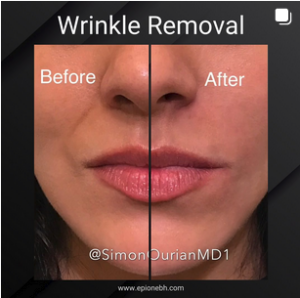In this article, we explore the world of wrinkles, aiming to comprehend their scientific underpinnings and how to manage wrinkles. Let us convey and uncover the wisdom concealed within, offering insights into the passage of time and enduring beauty that transcends appearances.
What are the scientific mechanisms that contribute to the formation of wrinkles?
The emergence of wrinkles as we age is primarily driven by a blend of factors.
1. Aging: As we age, our body produces collagen and elastin proteins that give our skin its elasticity and strength. This leads to skin that is less capable of bouncing back, ultimately causing wrinkles.
2. Skin moisture: Adequate moisture is essential for maintaining the flexibility of our skin. However, as we get older, our skin’s ability to retain moisture decreases, making it more prone to developing wrinkles.
3. Sun Exposure (UV Radiation): Prolonged exposure to UV radiation from the sun or tanning beds can speed up the breakdown of collagen and elastin fibers in our skin. This process, known as photoaging, contributes to the formation of wrinkles.
4. Facial expressions: Repeated facial movements like squinting, frowning, or smiling can gradually create lines and wrinkles over time. These are often referred to as “expression lines.”
5. Smoking: Smoking can accelerate skin aging by constricting blood vessels and reducing blood flow to the skin. It also deprives the skin of oxygen and essential nutrients, leading to wrinkle formation.
6. Genetics: Genetic factors play a role in determining an individual’s tendency towards developing wrinkles.
7. Food: The food we eat and the nutrients we consume play a role in maintaining skin and slowing down the aging process. A balanced diet that includes nutrients, antioxidants, and good fats can support overall skin health. Conversely, a diet high in sugar and processed foods can accelerate the aging of the skin.
8. Environmental factors: Exposure to pollutants and toxins in our surroundings can cause stress, leading to damage to skin cells.
9. Sleep: Inadequate sleep can increase stress hormone levels, which may negatively impact our skin’s well-being and speed up wrinkle development.
10. Hormonal changes: Fluctuations in hormones during menopause, for example, can alter the structure and moisture levels of the skin, making it more prone to wrinkles.
Are there any ways to prevent or reduce wrinkles?
Effective methods to prevent or lessen the appearance of wrinkles include using sunscreen to shield against UV damage, leading a lifestyle of staying hydrated using high-quality skincare products, and considering treatments such as Neurotoxin or dermal fillers for more advanced cases.
What role do skincare products and treatments play in managing wrinkles?
Skincare products and treatments can aid in managing wrinkles by hydrating the skin, stimulating collagen production, and providing smoothing effects. However, it is important to note that consistent usage is necessary; results may vary from person to person, and deep wrinkles may require procedures for complete reversal.
In summary, by understanding the mechanisms, individuals are empowered to make decisions about skincare routines, lifestyle choices, and protective measures aimed at minimizing wrinkle formation and maintaining looking skin at Epione.
